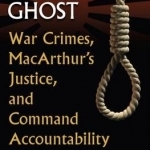Yamashita's Ghost: War Crimes, Macarthur's Justice, and Command Accountability
BookThis item doesn’t have any media yet
2014 | History & Politics
"I don't blame my executioners. I will pray God bless them. " So said General Tomoyuki Yamashita, Japan's most accomplished military commander, as he stood on the scaffold in Manila in 1946. His stoic dignity typified the man his U.S. Army defense lawyers had come to deeply respect in the first war crimes trial of World War II. Moments later, he was dead. But had justice been served? Allan A. Ryan reopens the case against Yamashita to illuminate crucial questions and controversies that have surrounded his trial and conviction, but also to deepen our understanding of broader contemporary issues-especially the limits of command accountability. The atrocities of 1944 and 1945 in the Philippines - rape, murder, torture, beheadings, and starvation, the victims often women and children - were horrific. They were committed by Japanese troops as General Douglas MacArthur's army tried to recapture the islands. Yamashita commanded Japan's dispersed and besieged Philippine forces in that final year of the war. But the prosecution conceded that he had neither ordered nor committed these crimes.
MacArthur charged him, instead, with the crime-if it was one-of having "failed to control" his troops, and convened a military commission of five American generals, none of them trained in the law. It was the first prosecution in history of a military commander on such a charge. In a turbulent and disturbing trial marked by disregard of the Army's own rules, the generals delivered the verdict they knew MacArthur wanted. Yamashita's lawyers appealed to the U.S. Supreme Court, whose controversial decision upheld the conviction over the passionate dissents of two justices who invoked, for the first time in U.S. legal history, the concept of international human rights. Drawing from the tribunal's transcripts, Ryan vividly chronicles this tragic tale and its personalities. His trenchant analysis of the case's lingering question-should a commander be held accountable for the crimes of his troops, even if he has no knowledge of them-has profound implications for all military commanders.
Related Items:
| Published by | University Press of Kansas |
| Edition | Unknown |
| ISBN | 9780700620142 |
| Language | N/A |
Images And Data Courtesy Of: University Press of Kansas.
This content (including text, images, videos and other media) is published and used in accordance
with Fair Use.
